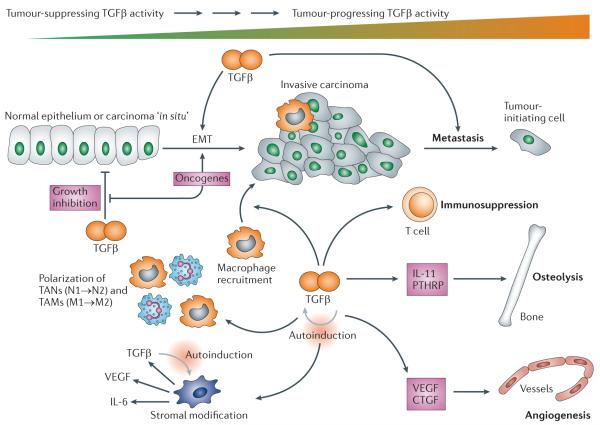Figure 3. Biphasic activities of the TGFβ signalling pathway during tumorigenesis: from the tumour suppressor to the tumour promoter.
Transforming growth factor-β (TGFβ) has biphasic actions during tumorig enesis, suppressing tumorigenesis at early stages but promoting tumour progression later on, which is the underlying paradigm for the action of TGFβ during disease progression in general and thus complicates the development of therapies targeting TGFβ signalling. The light grey arrows indicate a positive feedforward loop resulting in higher levels of TGFβ, which is a feature of non-neoplastic as well as neoplastic diseases. The current goal in cancer therapy is to downmodulate excessive levels of TGFβ ligands and to target the tumour-progressing versus the tumour-suppressing arm of TGFβ action; the latter goal will almost certainly require more-specific second-generation drugs. CTGF, connective tissue growth factor; EMT, epithelial-mesenchymal transition; IL, interleukin; PTHRP, parathyroid hormone-related protein; TAMs, tumour-associated macrophages; TANs, tumour-associated neutrophils; VEGF, vascular endothelial growth factor.

